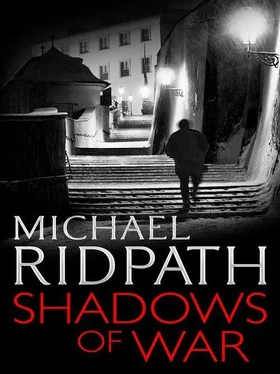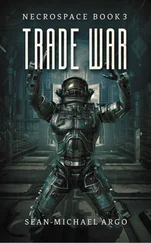‘I don’t know,’ said Constance. ‘It was just a feeling, that’s all. A guess. Perhaps Theo really did bring someone else along for Millie to meet.’
‘The secret service seem to think that Theo killed her.’
‘I know,’ said Constance.
‘But you can’t be certain that you actually saw him, let alone saw him stab her?’
‘I’m pretty sure it was him,’ Constance said. ‘And he is a German spy, isn’t he?’
Conrad nodded. ‘Well, thanks for telling me,’ he said. Then a thought struck him. ‘Why did you follow her?’
‘Why?’ Constance repeated.
‘Why?’
‘I’m curious. I’ve always been known for my nosiness. I wanted to know whether Theo really had brought someone to meet Millie, or if they were just, you know, meeting. An assignation. Also I suppose I didn’t like being left out.’
‘I see,’ said Conrad. But he wasn’t quite sure that he did see.
Mayfair, London
Conrad grabbed the pint of beer and the glass of gin and It and fought his way through the small pub in Mayfair to where Anneliese was sitting in a corner. He had known the place in the past as a quiet pub where they might talk, but there were no quiet pubs in London in wartime, even on a Sunday evening. At least they had been able to find a seat.
Anneliese raised her glass. ‘To Millie,’ she said.
Conrad smiled. ‘Yes. To Millie.’ They both drank.
‘I needed that.’ Anneliese put down her drink. Conrad had introduced her to gin and Italian vermouth soon after she had arrived in London and asked for something English from the bar. Afterwards he had realized it was a favourite of Veronica’s, but he hadn’t told Anneliese that. She was wearing her nurse’s uniform: the pub was full of uniforms of various types, although Conrad was still in his civilian suit.
‘I’m glad you rang me,’ he said.
‘Your mother wrote to me about Millie and I was shocked. I wrote her a note back and then I thought I must see you. I know how fond you were of your sister. I liked her; she always treated me well.’
‘Unlike Reggie?’ said Conrad.
‘Your brother is just ignorant,’ said Anneliese. ‘Millie wasn’t. She was fun.’
‘Yes, she was,’ said Conrad.
‘How do you feel?’ Anneliese asked.
Conrad was flummoxed by the simplicity of the question. ‘I’ll be all right,’ he said. ‘This is war. People will die.’
‘Oh, Conrad, don’t be so bloody British! Of course people will die. And it will be horrible for their brothers and sisters.’
‘Yes, of course,’ Conrad said stiffly. He glanced at Anneliese. His chest was churning with a turmoil of emotions to do with Millie. He hadn’t sorted them out; he hadn’t expressed them. He hadn’t even wept yet. He had been angry with his father. With Theo.
Anneliese waited.
Conrad was tempted to change the subject. To make a joke. To avoid at all costs cracking the wall that he was erecting around those thoughts about Millie. To behave how an Englishman should. But Anneliese wasn’t like that; his relationship with Anneliese wasn’t like that. They had shared a lot in Germany, and she had sought him out then, when she thought he needed support and strength.
It had been so good to hear her voice on the phone. It was good to be with her now, surrounded by a cocoon of noise and uniforms standing around their table.
‘I’m sad,’ he said, slowly and carefully, concentrating on not allowing his voice to crack. He was speaking quietly and in German: in the hubbub of the pub none of the servicemen around them would be able to hear. ‘I’m very sad. Millie had such a zest for life, such honesty, such enthusiasm. It’s wrong that she has gone. And it makes me angry. Very angry. So angry I can hardly think straight.’
‘Why are you angry?’ Anneliese asked.
Conrad struggled for a moment to maintain his composure. ‘I’m angry because it is wrong that a young woman like her should die, even in a war. She’s not a soldier. And I’m really angry about how she died.’
‘Yes. I don’t understand that,’ said Anneliese. ‘Your mother said she had been killed while on holiday in the Netherlands. That sounded very strange. I remember you saying you were going away. Were you with her?’
‘No,’ Conrad shook his head. ‘I did go to Holland; I just didn’t know she was there as well.’
Conrad told Anneliese all about Millie’s meeting with Theo, arranged by their father and Sir Henry Alston. He recounted what Constance had told him about how she had found Millie’s body in the dunes.
Anneliese listened intently. ‘And you knew nothing about any of this?’
‘No. Despite the fact that I saw Theo in Leiden the day before he met Millie. And that I spent the night at Kensington Square with Father and Millie just before I left for Holland. She and Constance must have been on the next flight!’
‘No wonder you are angry,’ said Anneliese.
‘It’s not just that,’ said Conrad. He paused, took a sip of his beer. ‘I should have gone instead of her. Father asked me, but I refused, and so he asked Millie instead and she said yes. And that’s why she’s dead. So I’m angry with myself.’
‘You can’t blame yourself for that,’ Anneliese said. ‘You didn’t kill her. You didn’t send her.’
Conrad shrugged.
‘What was she talking to Theo about?’
‘I’d better not say,’ said Conrad. ‘But you can probably guess. My dealings with Theo didn’t turn out too well either, although I didn’t think then that was Theo’s fault. At least I assumed it wasn’t. Now I’m not sure what the hell Theo was up to.’
Conrad knew he shouldn’t tell Anneliese about Oakford’s peace talks, or the shooting at Venlo, which was still being inaccurately reported in the British newspapers. But perhaps he should reassess Theo’s profession of lack of knowledge of Major Schämmel’s identity. Could he trust his friend after all?
‘Damn Theo,’ Conrad said, his voice still low.
‘For not telling you?’
‘For not telling me. And for not protecting Millie for me. You know, this Constance woman says that Millie and Theo had some sort of romance going on? Since last spring when they met in Switzerland. He never told me about that either. And also…’
‘Also what?’
‘The secret service seem to think that he killed Millie.’
‘No! That can’t be right!’
‘Constance saw a man walking from the dunes to the tram stop. She thinks it was Theo.’
‘Thinks? So she isn’t certain?’
‘Not one hundred per cent. But close to certain. She seems to have convinced the secret service.’
‘And what do you think?’
‘I hope it wasn’t him.’ Conrad shrugged. ‘But he’s a spy, Anneliese. We can never be sure what he is really doing or why. I want to see him. I really must see him.’
‘Can you manage that somehow?’ Anneliese asked.
‘I don’t see how. I do have a way of getting touch with him, but I can’t just swan over to Holland again. I have to go back to the battalion on Tuesday.’
Anneliese sipped her gin, thinking. ‘What’s happened to Millie?’ she asked. ‘Her body, I mean. Is it still in Holland?’
‘The Dutch authorities are keeping hold of her,’ Conrad said. ‘They have done a post-mortem, of course, but her body is evidence in a murder inquiry. The embassy is supposed to be dealing with it, but they seem useless. It’s all rather ghoulish. Mother can’t stand it, and it makes it impossible to arrange the funeral.’
‘Shouldn’t someone go over there to sort it out?’ said Anneliese. ‘You, for instance?’
‘Maybe I should,’ said Conrad. He nodded as he thought it through. ‘Good idea. I’ll talk to Father about it.’
Читать дальше












